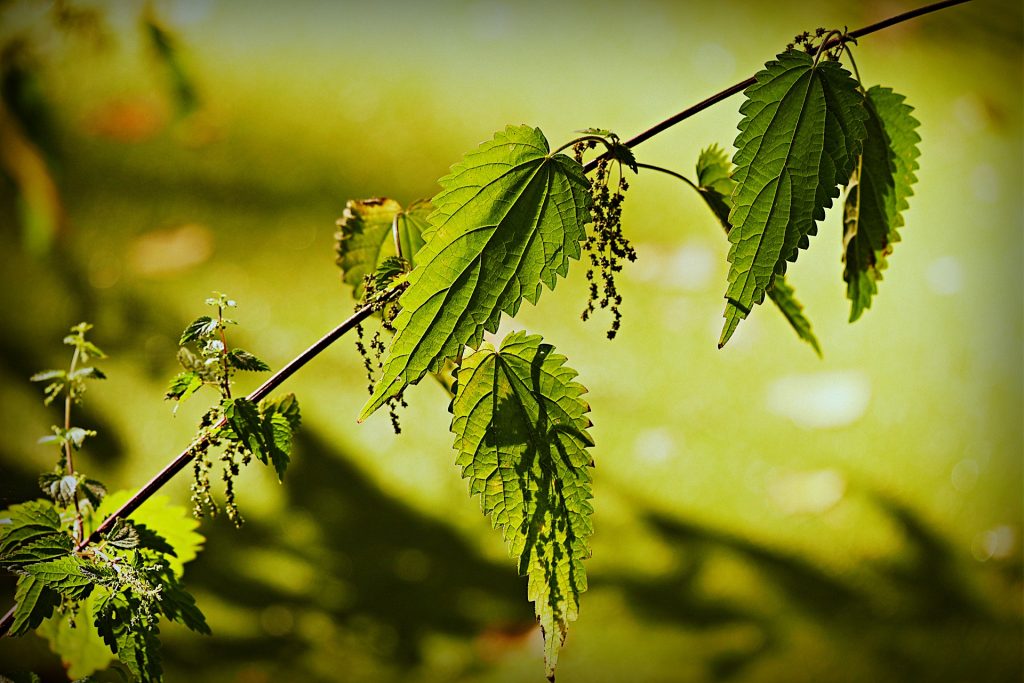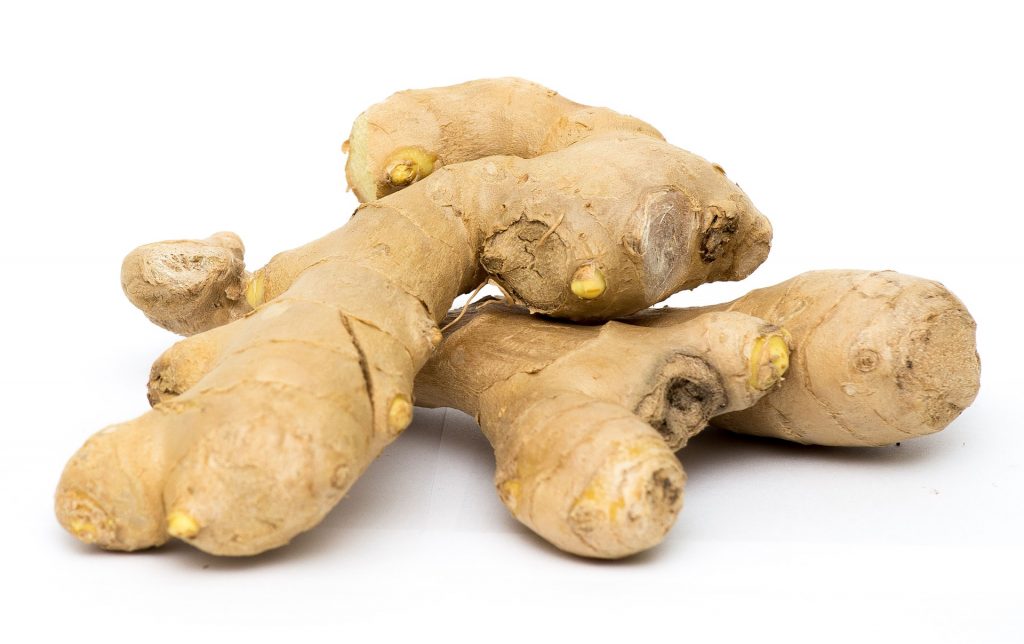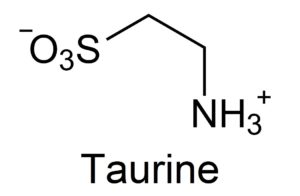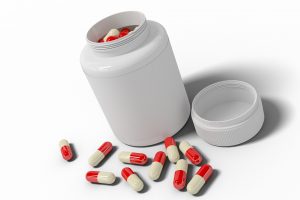Treatments for Seasonal Allergies

Spring and fall can bring beautiful flowers and trees with leaves changing colors. And yet, for some people the changing seasons can bring misery with seasonal allergies. Itchy eyes, a runny nose and even increased asthma symptoms can make you feel miserable. Luckily, there are both standard and natural treatment options to help with allergy symptoms.
Antihistamines
Standard approaches for reducing seasonal allergies include antihistamines and intranasal steroid sprays. However, some older antihistamines come with significant risks. First generation antihistamines, including Benadryl (diphenhydramine) appear to increase the risk of dementia with long-term use. Approximately 3 years daily treatment with Benadryl appears to increase risk of dementia by a factor of 1.5 (Gray 2015). Luckily, Allegra, Zyrtec and Claritin, also used for allergies, don’t seem to have the same dementia risks, although they still have side effects, including fatigue and drowsiness.
Intranasal Steroids (Nose Sprays)
Intranasal steroids for allergies are also typically well tolerated, although risks for causing eye problems, including fluid-filled retinal detachment (central serous chorioretinopathy) and increased intraocular pressure have been reported (Nakatsuka 2019, Zain 2019). While studies haven’t pinned down an increased risk for glaucoma, there are still valid concerns due to increased pressure seen with nasal steroid use (Valenzuela 2019).
Natural Treatments for Seasonal Allergies
Based on the research, there are some herbal medicines that appear to reduce allergy symptoms as well. While the evidence is preliminary, the initial studies hold promise. Unfortunately, most of the research has been limited to a few clinical trials for each herb. However, the following herbs are also known to be quite safe with minimal risks or side effects.
The preliminary evidence suggests there may be a couple of natural options for seasonal allergies:
- Stinging nettles (Urtica dioica)
- Pycnogenol (Pine bark extract)
- Blackseed (Nigella sativa)
- Ginger extract
Stinging Nettles (Urtica dioica)

Freeze-dried nettle root has been a standard herbal recommendation for seasonal allergies ever since a study in 1990 where nettles provided clinical benefits. The study showed that 57% of patients found nettles to be moderately or highly effective for alleviating allergy symptoms. In addition, half the treatment group thought nettles worked better than previous allergy treatments they’d tried. The main problem with the study was a large drop out rate, which could indicate numerous people gave up on treatment due to insufficient benefits (Mittman 1990). Even before being known as an allergy treatment, nettles have been known as a nutritious wild edible (when cooked), and safety profiles with nettles are quite good (Dar 2013).
Stinging nettles likely treat allergies through anti-inflammatory activity. Research has shown significant anti-inflammatory effects through multiple pathways relevant for allergic symptoms (Roschek 2009).
Pycnogenol (Pine bark extract)
Pycnogenol is the trademarked name of a specific pine bark extract from France. The extract has been studied for numerous health conditions showing potential benefits for attention deficit hyperactivity disorder, osteoarthritis and erectile dysfunction among other conditions (Verlaet 2017, Jessberger 2017, Trebaticky 2019)
For allergic rhinitis, taking pycnogenol starting two months before allergy season significantly reduced eye and nasal symptoms (Wilson 2010). In asthmatic children, pycnogenol was also shown to improve lung function and asthma (Lau 2004). Animal studies also suggest benefits for allergic conditions (Unsal 2018, Liu 2016).
Pycnogenol appears to be quite safe with studies even suggesting that it can protect from other toxic insults (Raskovic 2019, Eryilmaz 2016). With it’s broad spectrum anti-inflammatory effects, there are a number of conditions, including seasonal allergies, where pycnogenol appears beneficial.
Blackseed (Nigella Sativa)
Blackseed (sometimes called black cumin) is a revered herb from the Middle East often used for health purposes. More recently, research is beginning to suggest that the anti-inflammatory effects of blackseed may be relevant for helping to control seasonal allergies.
A study on nasal allergy symptoms showed that within two weeks most patients on blackseed had reductions in nasal congestion, itching, runny nose, sneezing and nasal swelling as compared to placebo. In the study, 21 of 30 patients in the treatment group had mild to no congestion at one month and 27 of 30 patients had only mild or no symptoms of a runny nose (Nikakhlagh 2010). Other research on blackseed has suggested potential benefits for asthma as well (He 2020).
Often used as a culinary spice, blackseed has a long history of safe use. A recent study brought up concerns for liver toxicity, however the dose would be the equivalent of a person consuming more than 2 pounds of blackseed in one sitting (Bensiameur-Touati 2016). There is also one case report of potential kidney toxicity in a diabetic patient that reversed after discontinuing. The purity and concentration of the blackseed tablets used by the patient were unknown (Arslan 2013). An overall review of the liver and kidney effects in humans concluded that blackseed in short-term standard doses appears beneficial for both liver and kidney function (Razmpoosh 2020). A recent review of blackseed research for diabetes recommended it as an effective adjuvant treatment for diabetes and its complications (Mahmoodi 2020).
Ginger

A common kitchen spice, ginger is often enjoyed for its taste in candy and other sweets. Herbally, it’s probably best known for treating nausea, although it has shown effects for arthritis as well (Anh 2020).
A recent trial using ginger for allergies also showed significant benefits. Ginger extract was compared to loratadine (Claritin) in 40 individuals with allergic nasal symptoms. Ginger was shown to work as well as the drug with less side effects (Yamprasert 2020). Known to be anti-inflammatory, ginger probably decreases allergies through its anti-inflammatory properties.
Conclusion
Seasonal allergies can be unpleasant for sufferers. As a child, I had seasonal allergies and remember how much I hated having a stuffy, runny nose every fall. While standard allergy medications can improve symptoms, safe, natural options including nettles, pycnogenol, blackseed and ginger may also help in some cases.



